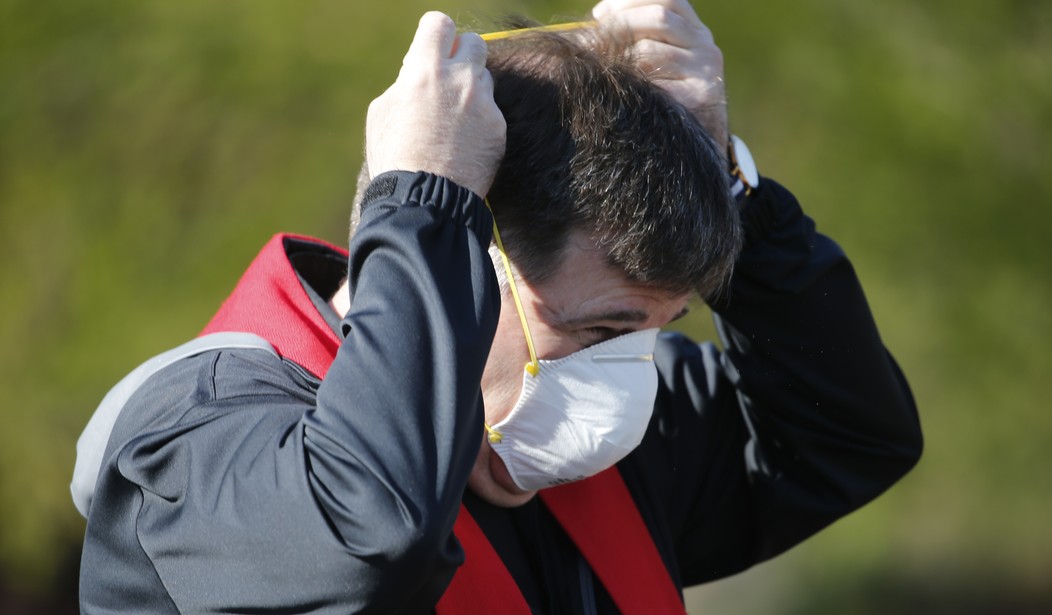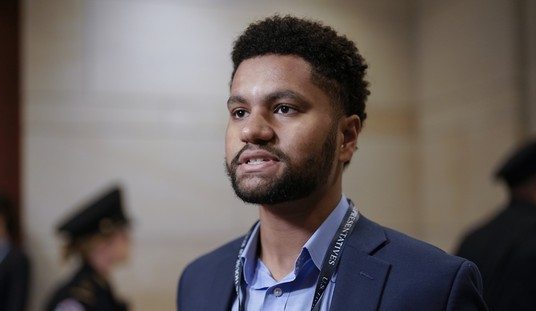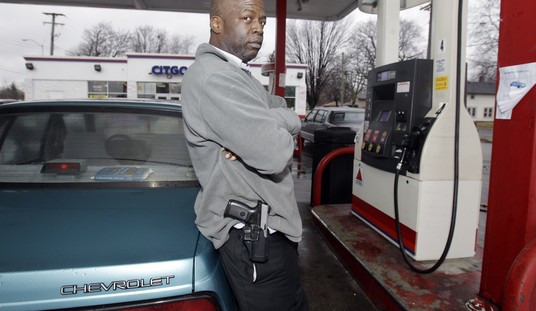Illinois Governor J.B. Pritzker has been surprisingly fair to gun owners during the coronavirus pandemic, keeping gun stores in the state open for business and extending FOID and concealed carry licenses for several months after the current state of emergency is lifted. Pritzker’s latest executive order, however, has some gun owners scratching their heads and worried about their ability to legally carry.
Pritzer has included an order for all individuals over the age of two years to wear masks when inside commercial establishments, as well as outside when social distancing measures are impossible. One unintended consequence of the governor’s order, however, is that wearing a mask while armed is a no-no under Illinois law. In fact, it’s a class four felony to be armed and masked. Was Pritzker trying to use his mask order as an end-around Illinois’ carry laws, or to entrap gun owners into committing a crime if they carried their legally owned firearm while wearing a mask?
I don’t think so. In fact Prizker and the Illinois State Police are reassuring gun owners and concealed carry holders that their right to bear arms is not at risk, even with the mask order set to take effect on Friday.
In a recent press statement, the ISP stated that the governor’s executive order “was not intended to negatively impact permit holders under the Illinois Concealed Carry Act while legally carrying firearms.”
The Executive Order does not require or suggest that law enforcement should arrest or criminally charge conceal carry license permit holders for wearing protective masks while in public as long as they are complying with the other provisions of the Illinois Concealed Carry Act and are not committing any other violations of Illinois law. ISP has confidence that law enforcement officers across the state will use appropriate judgment and that elected State’s Attorneys will likewise exercise sound prosecutorial discretion.
In other words, don’t hold up a store or whip out your gun in a fit of road rage and you’ll be fine.
The only problem with the Illinois State Police statement is that the law enforcement agency doesn’t speak for every city and town in the state. It’s all fine and good for the state police to give guidance to local police departments and prosecutors, but that doesn’t guarantee that a zealous officer or an anti-gun locale like Oak Park won’t try to press their luck by arresting a concealed carry holder who’s exercising her Second Amendment rights while masked for public safety.
The problem is that while Pritzker has the authority under the state’s Emergency Management Agency Act to suspend regulatory statutes, he doesn’t have the power to suspend enforcement of any criminal statutes. That means that, despite the guidance by hte state police, localities could still prosecute any masked concealed carry holder they might find. It would be up to the legislature to officially change the law and allow concealed holders to legally mask up while armed, but while the legislature is technically in session until May 31st, lawmakers have left Springfield and may not return until June to pass a state budget.
Pritzker has an even bigger problem regarding his new executive order: a southern Illinois judge ruled on Monday that the governor’s order doesn’t apply to a Republican state legislator who filed suit over the legality of the order. From the Chicago Law Bulletin:
[Clay County Judge Michael] McHaney’s ruling only applies to Rep. Darren Bailey, who sued Gov. J.B. Pritzker last week at the Clay County courthouse in Louisville.
McHaney’s order enjoins the governor from enforcing the current stay-at-home orders, as well as any future orders “forcing him to isolate and quarantine in his home,” the Monday order states.
Pritzker blasted the judge’s decision at his Monday daily press briefing, describing the ruling as dangerous, and putting “the people of Illinois at risk.”
“Rep. Darren Bailey’s decision to take to the courts to try and dismantle public health directives, designed to keep people safe is an insult to all Illinoisans who have been lost during this COVID-19 crisis and it’s a danger to millions of people who may get ill, because of his recklessness, at best, no one is better off because of this ruling and at worst people’s health and safety will suffer tremendously,” Pritzker said.
Bailey, a Republican representing parts of southeastern Illinois, said McHaney’s ruling showed the governor or the legislative leaders could have called the legislature into session to debate and clarify the emergency powers.
“The U.S. Congress has met using common sense distancing and even local city councils and county boards have been meeting with the use of technology like Zoom. The only other option at this point to ensure the checks and balances of power in Illinois are through the courts,” he said in a statement after Monday’s hearing.
Rep. Bailey’s lawsuit also argues that Pritzker doesn’t have the authority to extend a state of emergency beyond the 30-day window set forth in the state’s Emergency Management Agency Act. The text is pretty clear.
In the event of a disaster, as defined in Section 4, the Governor may, by proclamation declare that a disaster exists. Upon such proclamation, the Governor shall have and may exercise for a period not to exceed 30 days the following emergency powers; provided, however, that the lapse of the emergency powers shall not, as regards any act or acts occurring or committed within the 30-day period, deprive any person, firm, corporation, political subdivision, or body politic of any right or rights to compensation or reimbursement which he, she, it, or they may have under the provisions of this Act:
However clear the text may be, there’s nothing stopping Pritzker from ending the state of emergency at 11:59 p.m. on April 30th and imposing a new 30-day state of emergency at 12:00 a.m. on May 1st.
The legal wrangling over the scope of the governor’s powers will continue as Bailey’s case is appealed, but in the meantime the new orders, including wearing masks in public, are still scheduled to take effect on Friday. Once that happens, concealed carry licensees may be able to carry without too much concern in most of the state, but if I lived in Chicago or one of its anti-gun suburbs, I’d be a little worried until I heard directly from local law enforcement that they don’t plan on enforcing the law against carrying while wearing a mask.









